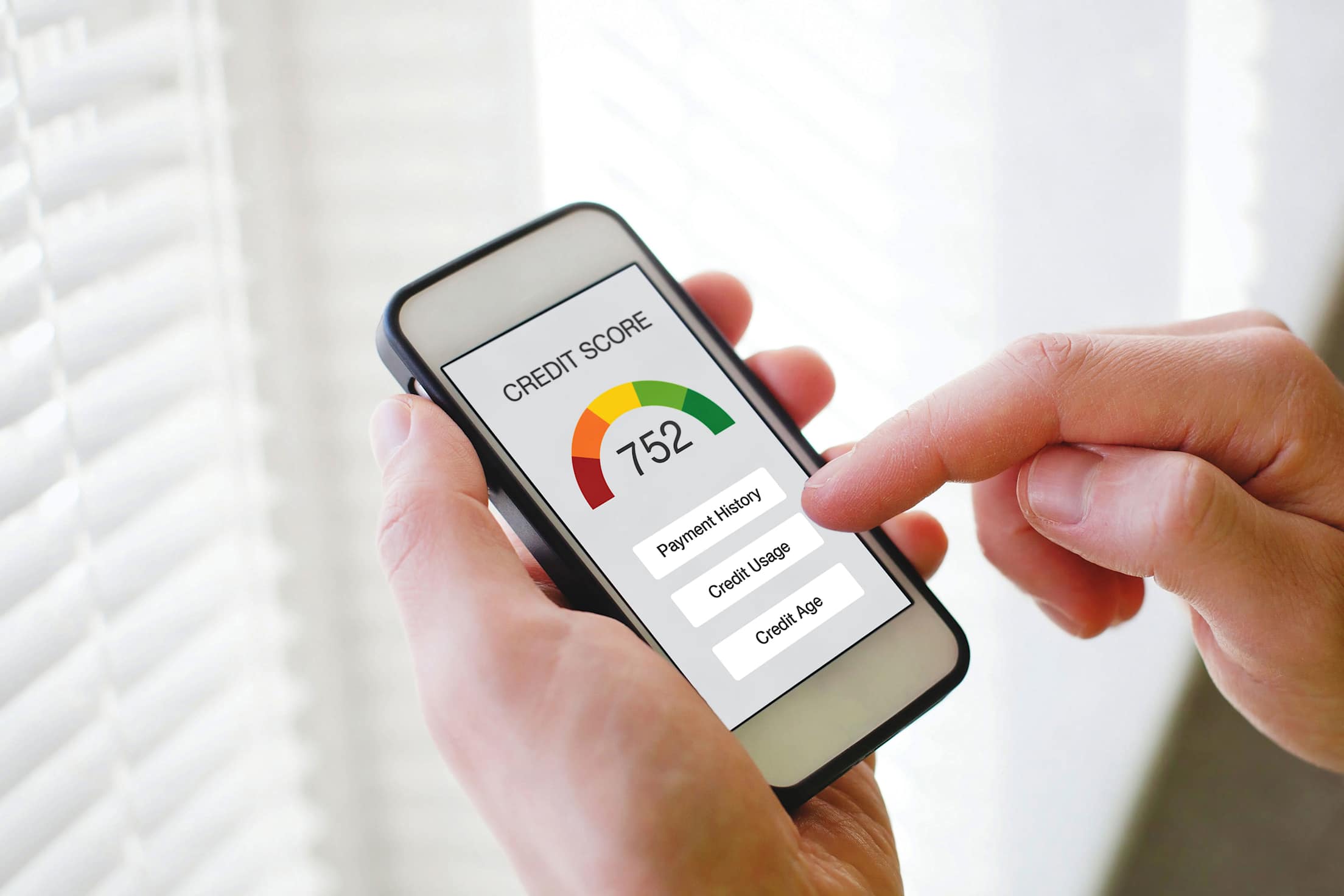
How to Read a Credit Report Line by Line
Make a habit of regularly checking your credit report to ensure every detail is accurate.

Getting a free copy of your credit report is easier than ever, but because they were designed by and for companies and not consumers, learning how to read one can take some time.
You are entitled to obtain one free copy of your official credit report from each of the three credit bureaus—Experian, Equifax, and TransUnion—once a year at annualcreditreport.com. Through the end of 2023, however, you can get each report as often as once a week, a benefit that began in 2020 to help people through the Covid-19 pandemic.
A credit report “is your financial report card,” says Ted Rossman, senior industry analyst with Bankrate. It shows prospective lenders how good or bad you are at handling credit. It can have a big impact on whether you get a loan and how much you’ll pay, so it’s crucial to make sure every detail is accurate.
“The report is the raw information that’s used to calculate credit scores,” Rossman says, but it generally does not include a score. Each of the bureaus provides basically the same information, but there is no standard format, so each report will look a bit different.
Getting mistakes corrected takes time. Ideally, you should check your report periodically and “at least two or three months before a major purchase,” says Kate Hao, founder of Happy Mango, which helps lenders make loans to people with tarnished credit history or none at all.
How to Get a Credit Report
To get your free reports at annualcreditreport.com, you’ll need to provide your name, address, Social Security number, and date of birth. Then you’ll have to verify your identity by entering a code sent by text or email or answering questions from information in your credit report.
You can get your own credit report even if you have frozen it to prevent access by certain third parties.
Obtaining your own credit report will not impact your credit score.
Who Can See Your Credit Report
Entities with a permissible purpose can access your report, generally with your permission after you have submitted an application to them. This includes any lender you’re seeking credit from, your existing creditors, employers or prospective employers, insurance companies, government agencies for the purpose of extending benefits, potential landlords, utility companies that may provide services to you, and banks when you want to open a checking account, according to the Federal Reserve.
Some states prevent entities such as employers, insurance companies, and utilities from accessing your credit report or using it in certain ways.

What’s in Your Report
Personal Information
This includes your name, address, full or partial Social Security number, and date of birth. It’s not uncommon for credit bureaus to mix up people with the same name or similar ones, so it’s crucial to check this information for accuracy.
Employer
Your report might include your current and/or past employers if you put their name(s) on loan application(s). It won’t include your income or how long you worked there and your employment will never factor into your credit score so there’s no need to update it, according to Experian.
Unpaid Child Support
Delinquent child support payments can appear in a credit report if the delinquency is reported by the state agency.
Credit Inquiries
These can be hard inquiries by lenders after you apply for credit, or soft inquiries, which include periodic reviews by current lenders, pre-screening inquiries by prospective lenders, and your own requests. Hard inquiries may affect your credit score; soft inquiries do not.
Credit Information
This is the largest and most important part. It consists of payment information on open and closed accounts including credit cards and home, car, and student loans.
It will show whether you are the account owner (including for loans you co-signed), a joint owner with another person, or an authorized user. Make sure you note the difference and that it’s reported correctly.
Depending on the type of account, it might show your required and actual payments, terms, current and high balance, credit limit, and whether you paid on time or were late, and if so, how late. Most lenders do not start reporting payments as delinquent until they are 30 or more days past due.
One exception: Federally guaranteed student loans are typically not reported as delinquent until they become 90 days late. Private student loans may be reported delinquent sooner, according to Eric Ellman, senior vice president with the Consumer Data Industry Association, a trade group for the consumer reporting industry. When a student loan is in deferment or forbearance, no payments are due, but the debt may still show up on your report. Even if you make a single payment, your student loans may show up as separate accounts for each semester.
Credit information comes from your lenders, but not all lenders report to any or all three bureaus, so it’s important to check all three reports for accuracy.
The Consumer Financial Protection Bureau says consumers should look out for and correct errors such as:
- incorrect accounts resulting from identity theft;
- closed accounts reported as open;
- on-time payments reported as late or delinquent;
- accounts on which you are reported as an owner when you are just an authorized user;
- incorrect balances or credit limits;
- and the same debt listed more than once, possibly with different names.
What’s (Usually) Not in Your Credit Report
Other Debts
Money you owe to entities other than lenders—such as utility or telecom companies, doctors, or hospitals—generally do not show up on your credit report unless they have been turned over to a collection agency and the agency reports them.
Public Records
Certain debts obtained from public records previously appeared on credit reports, but they were removed in 2017 and 2018. These include tax liens, civil judgments, and unpaid library fines and traffic tickets. Bankruptcies, which show up in public records, still appear and are a “major red flag,” Hao says.
Evictions
These do not show up on credit reports, and, since civil judgments no longer appear, if the landlord were to sue for unpaid lease amounts, that would not appear on the credit report either, Ellman says. However, evictions can show up on tenant-screening reports that landlords often obtain when someone applies for a rental.
Buy Now, Pay Later Loans
This new, fast-growing type of loan lets buyers pay for purchases in installments, often in four equal payments every two weeks. There is usually no interest or late fee if the buyer pays on time. Some longer-term Buy Now, Pay Later (BNPL) loans do charge interest and fees.
Most BNPL lenders do not report loans to the credit bureaus. If they do report loans, the three bureaus treat them differently.
The Consumer Financial Protection Bureau has urged the credit bureaus and BNPL lenders to come up with a consistent format for reporting these loans but so far they haven’t.
How long does information remain?
Open accounts in good standing will stay on your report indefinitely. Closed accounts that were paid as agreed stay on your report for up to 10 years.
Most negative information—such as delinquencies, late payments, collection accounts, and defaults—stay on credit reports for seven years. Bankruptcies remain for seven to 10 years, depending on the bankruptcy type.
One exception is medical debt. Starting July 1, 2022, the three credit bureaus stopped reporting unpaid medical collection accounts until they were one year past due (up from 180 days previously) and removed all paid medical collections from credit reports. They also announced that starting in the first half 2023, medical collections with balances below $500 will no longer appear on consumer credit reports.
The newer the information, the greater the effect it will have on your credit score. “The negative effects are most pronounced in the first several years,” Rossman says.
How to Correct Errors
If you find a mistake on your credit report, report it immediately to the credit bureau(s) and the company that provided the misinformation. Include an explanation and documents supporting your point. You can dispute errors by phone, by mail, or online while viewing your report.
What if you’re denied credit?
Under the Fair Credit Reporting Act, if someone uses your credit report to deny your application for credit, insurance, or employment or takes an adverse action against you, that person or entity must give you the name, address, and phone number of the agency that provided the information. To learn more, go to consumerfinance.gov and search for “Fair Credit Reporting Act.”
AAA Members get free identity monitoring, plus discounts on upgraded protection.